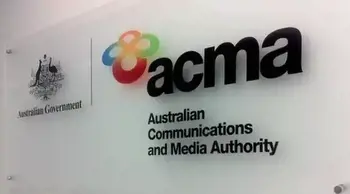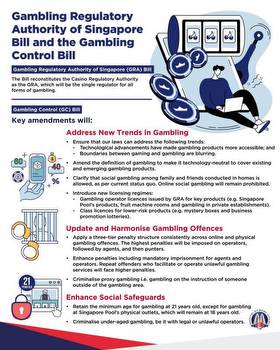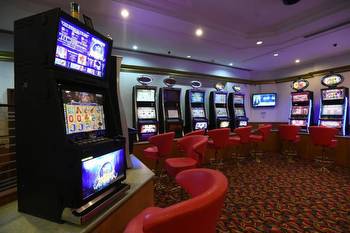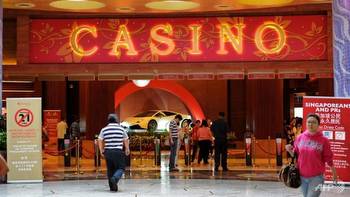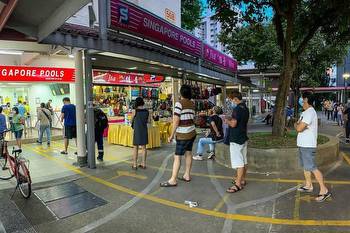Gambling addiction hard to beat
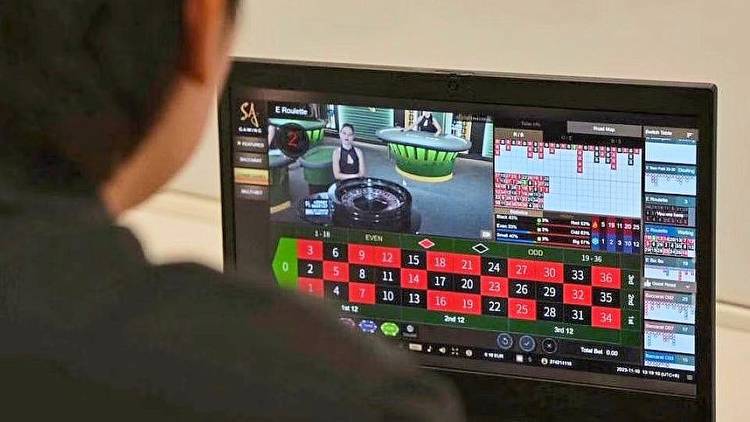
BETWEEN 2020 and 2022, the number of problem gamblers seeking help from different agencies in Singapore numbered from about 800 to 1,000 each year. Around half of those who made a declaration had participated in illegal online gambling.
These figures, shared by Sim Gim Guan, the chairman of Singapore’s National Council on Problem Gambling (NCPG), took into account cases seen by Resilienz Clinic and the Institute of Mental Health’s National Addictions Management Service, as well as community-based social service agencies.
Although illegal, online gambling through sites other than legal operator Singapore Pools continues to be a pastime for many.
Not only do these sites offer convenience, but they also boast a repertoire of games, which may not be available at legal gambling operators. Betting opportunities on such gambling sites sometimes also provide higher odds.
Sim said: “Illegal gambling sites find ways and means of enticing people to gamble, and do not implement social safeguards and responsible gambling measures.
“This contributes to a higher incidence of problem gambling, as evidenced by the persons who engaged in illegal online gambling and subsequently approached agencies for help.”
Despite the Singapore authorities’ efforts to crack down on them, gambling sites continue to be a perennial bugbear.
A spokesman for the Gambling Regulatory Authority (GRA) told us that it has blocked access to more than 1,900 remote gambling websites and more than 260 bank accounts as at September.
It has also worked with financial transaction providers to block close to 115,000 credit card transactions between January 2017 and September 2023.
Since its formation in August 2022, the GRA has received about 70 reports related to unlawful remote gambling services, the spokesman added.
And yet, like a hydra, more of such sites continue to spring up despite the authorities’ best efforts to stymie them.
“GRA recognises that the borderless nature of the Internet makes it easy for unlawful gambling operators to offer their products to users in Singapore anytime and anywhere,” said the spokesman.
“Technology also allows these gambling operators to create multiple websites offering the same unlawful gambling services, and to easily create new websites to replace those which have been blocked.”
When asked about the GRA’s processes, he said it prioritises efforts to impede access to sites that pose a higher risk, such as those that have many visitors from Singapore.
After it receives a report about an illegal gambling website, it will assess if the said site and its corresponding mirrors, or alternative sites that bring users to the same platform through a different URL, should be blocked.
“When blocking is required, GRA will direct the Infocomm Media Development Authority to issue an access blocking order to the Internet service providers to disable access to the website.”
When asked about the different categories of gambling activities online, GRA said it does not track the categories of online gambling activities that the unlawful gambling websites offer.
To meet the varied demands of customers, Singapore Pools, the only licensed operator of lotteries and sports betting services here, offers gamblers several betting options. These range from 4D and Toto, to football, motor racing and horse racing.
In a joint statement, the Tote Board and Singapore Pools said Singapore Pools is firmly committed to operating in a socially responsible manner, in compliance with regulatory requirements.
“It maintains an effective counter to illegal gambling operators and ensures that funds remain in Singapore, while being mindful of its responsibility to mitigate the social harms of excessive gambling,” they said.
In the financial year that ended on March 31, Singapore Pools generated a total revenue of SG$11.4bil (RM39.6bil), of which 97%, or SG$11.1bil, was redistributed.
Of this amount, SG$8.4bil was given out as prize payouts, and SG$2.2bil was paid in the form of gambling duties and taxes. The remaining SG$513 million was given to the Tote Board to support community-based projects.
Some sites fall through cracks
Not all illegal gambling websites will be on the authorities’ radar.
ST learnt of one such site that allows gamblers to access online casinos.
It could be accessed without a virtual private network (VPN), which means users need not pretend to be from another country in order to use it.
The website said that certain gambling providers would not be accessible to Singapore-registered accounts, citing restrictions imposed on different jurisdictions.
To test that, ST set up an account with a Singapore address and phone number.
While certain games said they detected that the account came from a blocked region, those under the live casino section were all playable.
This section featured mainstays like roulette, baccarat and blackjack, as well as regional games such as sic bo, which is commonly played in Macau casinos.
In such games, a Caucasian host would facilitate each round, taking turns to swap with another after a certain period of time had elapsed.
On average, the number of people in any one game numbered in the tens of thousands, although some may have only been watching what transpired on screen, as players need not actually place bets to view what is happening.
For those keen to make a quick buck, however, the website accepted deposits in cryptocurrency such as Bitcoin and Ethereum.
It also accepted those made with a Visa card or through virtual wallet AstroPay.
Addiction is hard to kick
Since gambling websites allow gamblers to access their bank accounts or credit cards easily, it makes it easier for debts to “multiply at astronomical rates”, said Dr Munidasa Winslow, the founder of psychiatric and psychology clinic Promises Healthcare.
He added that the sheer ease at which money could be lost is what makes online gambling such a danger for addicts.
Describing gambling as one of the worst addictions to have, he said those who tend to gamble online on illegal sites skewed younger, from 18 to 35, and were mostly men.
Among the different kinds of addictions, those addicted to gambling are “least likely to come forward (to seek help). They find it difficult to wrap their heads around the fact that they have a problem”, said Dr Winslow.
“None of the alcoholics I’ve worked with think that by going back to drinking, all their problems will be gone.
“But gamblers, they think that the next time they go back to gambling, their problems will disappear.”
This mindset, while paradoxical, is spurred by the pursuit of the next big win, he added, even though there is no guarantee there would be any windfall.
While some gamblers may seek help of their own accord, many others do so only at the behest of their families, said Khor Hui Yin, a counsellor at Resilienz Clinic.
This may happen after they incur debts and seek their families’ help to bail them out financially.
The main challenge most problem gamblers face is managing their gambling urges when faced with triggers like peer pressure and exposure to gambling advertisements.
To address that, Khor, who has four years of counselling experience, has gamblers identify the triggers and learn how to cope with them.
These include finding out their interests and passions beyond gambling, and adapting to lifestyle changes, she said.
In one of the most challenging cases that she worked on, a gambler’s addiction strained familial relationships to the point that ties were severed.
“The recovery process was particularly daunting due to the absence of robust social and family support,” she said.
But with numerous counselling sessions, the gambler successfully abstained from gambling for more than a year.
“We are currently working on the process of rebuilding their family ties,” she said.
Those affected by gambling problems are encouraged to seek help with NCPG or social service agencies, regardless of whether they are gambling with licensed operators or illegal gambling sites.
Signs of gambling addiction
Gambling addiction has several potential far-reaching consequences, said Khor from Resilienz Clinic.
Individuals may find themselves in severe financial trouble, which could lead to depression, anxiety and suicidal thoughts.
They may also face problems at work, including losing their jobs, as well as health problems.
Coupled with the stigma surrounding the addiction, it could also cause the individual to feel isolated.
Some common warning signs that one may have a gambling addiction include:
• Preoccupation with gambling: They think constantly about gambling, upcoming bets or past gambling experiences.
• Failed attempts to stop: Unsuccessful attempts to cut down or control gambling.
• Neglecting responsibilities: Neglecting work, school or family responsibilities due to gambling.
• Borrowing money: Borrowing or stealing money to continue gambling.
• Relationship problems: Strained relationships with family and friends due to gambling behaviour.
• Chasing losses: Believing that they can recover losses by gambling more.
• Taking more risks: Taking bigger risks to experience the same level of excitement. – The Straits Times/Asia News Network









